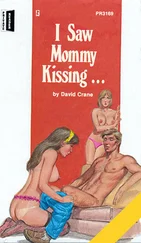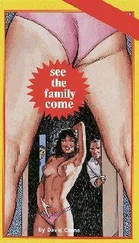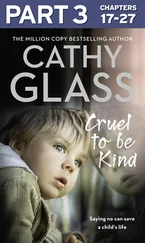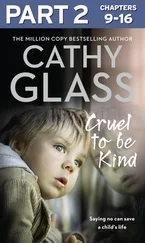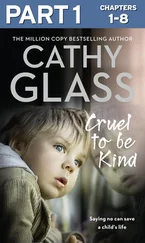RORY HAD Akid sister named Kerri who was in my grade. To me, the most interesting thing about Kerri was that she had a sister named Rory. Kerri only waited a week to come back to school after her mother died and right off the bat there was an incident. I walked by her and accidentally bumped into her desk. Her crayon slipped out of the lines and she lost it.
“Look what you did! You ruined my picture! I’m sick of this! First my brothers and now you! I’m sick of it! Do you hear me? I’m sick of it!”
It was like I had accidentally knocked a knife off a table and didn’t catch it for fear of getting cut. I jumped out of the way and let it fall. I had a feeling it wasn’t about her picture, but I didn’t know what else to do. Mrs. Johnson said, “OK, Kerri that’s enough. Why don’t you sit down now.”
She didn’t even wipe her nose or her eyes until a drop landed on her picture.
Outbursts weren’t Kerri’s only form of grieving. A few times she just got really quiet and said she wasn’t feeling well. She’d go to the school nurse and her father got called at work to come pick her up. Mrs. Johnson explained to us that she thought Kerri wasn’t sick, but rather she was upset about her mom. That I understood.
The thing that didn’t make sense was the water fountain.
The class was silently staring into workbooks, trying to solve three-digit subtraction problems, when I went to get a drink. Bent over with my mouth near the faucet, I felt someone come up behind me. I turned around; it was Kerri. She was standing uncomfortably close but wasn’t looking at me. She had her eyes on the fountain. I wiped my mouth and stepped around her cautiously, not sure if she was done throwing tantrums.
Two days later, same thing again. Got up right behind me, stood close and still didn’t look at me.
I couldn’t see why the girl who, weeks before, chewed me out in front of everyone now needed to stand so close and put her mouth to the same faucet right after mine.
The third time I wasn’t even thirsty. I only wanted to see if it would happen again. By the time I had my face over the faucet, Kerri was behind me. Mrs. Johnson announced—so everyone could hear—how she’d noticed that every time Joseph got up for a drink, Kerri did also. When all the heads and giggles pointed in Kerri’s direction, Mrs. Johnson asked if Kerri was really thirsty. Kerri answered her question by sitting down.
In the second grade, we didn’t expect to have to deal with adults who couldn’t see it was uncool to publicly embarrass a kid who lost her mother a month ago. Nor did we expect in the summer ahead of us there would be a citywide blackout, that Elvis Presley would die so young, that a bomb threat would evacuate thirty-five thousand people from the World Trade Center or that the Son of Sam would turn out to be a twenty-four-year-old guy named David who lived in our neighborhood a few blocks from where we played. How could we have conceptualized evil as a quiet guy who worked at the post office, rented the studio apartment down the street and lived among us? Fifteen years earlier he attended our elementary school, was taught by the same teachers, sat at our desks and drank out of the same water fountain. As grade school children, we had no idea that we were months away from those kinds of thoughts.
WE THOUGHT ITwas him.
Kerri and I tried to play as if the water fountain incidents never happened. Catherine and I pushed our curfew. The sun was setting. We stopped the game for the car coming down the street. When it got close, we saw it was cream-colored, then we saw there was one guy in it.
Some kids took off and ran through front yards, between houses. Some screamed. I couldn’t run. I fell backward, put my forearms in front of my face, not wanting to see or be seen. When I peeked out from behind my arms, he was halfway down the block; my sister was through our front door. It was time to run home, but not without my ball. I ran to Kerri, who was on the sidewalk, her whole body wrapped around the kickball.
I said, “Give me the ball,” and tried to pry it from her. She rolled over and wouldn’t let me grab it.
“Come on!” I said.
She wasn’t giving it up. On top of her, I tried to get my hands between her stomach and the ball. She was fighting me. I rolled her on her back—she was laughing. Not a good time for a game of keep-away, I thought. I tried to punch the ball loose but never meant to knock the wind out of her. She held her ribs and cried. I said I was sorry, but she didn’t even look back as she ran to her house. Someone had been yelling for her to get the hell inside. The screen door slammed behind her, then Rory appeared behind it. Her hair was gone, cut straggly, close to her head; it looked like she’d done it herself. She yelled at me, “Get out of here! Go home!”
My mother grabbed me by the back of my shirt and didn’t let go until we were in our house. She yelled at me for not running home like my sister and wanted to know if I knew how to listen.
Nowhere. From now on, after dinner, we were to go nowhere.
I went into my room, closed the door and slammed the ball against my dresser; my lamp fell. I thought about the smile on Kerri’s face while she wrestled me for the ball. Kerri Gallagher likes me? I grabbed the windowpane, tried to look up the block and only saw the streetlights come on. Kerri Gallagher likes me.
THE NEXT MORNINGwe ate our cereal without talking as the radio played the news in the background. When it was time to go to school, we were handed our lunch boxes.
We stepped outside. It felt as if an overnight snowfall had covered the entire neighborhood in three feet of silence.
When we pulled up to school, Catherine and I leaned over the front seat to kiss our mom goodbye. She waited until we walked in the front door to drive away.
Kerri spoke to no one. During lunch hour she was sitting on a bench next to two other girls who were making finger puppets out of lined paper. I didn’t have it in me to go over to her. Only when we were all making our way back into the school was I able to walk up next to her and ask if she was OK. She didn’t even answer me.
We all sat at our desks and were told to get our math workbooks out.
I didn’t want to do anything Mrs. Johnson said. It made no sense why she had embarrassed Kerri yesterday. It made no sense why the cops couldn’t catch the .44-Caliber Killer or why parents yell at their children when they’re trying to protect them or why we had to solve three-digit subtraction problems again.
While they all had their heads down, I went for the fountain. I drank, then turned back around. No one was standing close to me. Everyone still had their heads in their books. I went to the closet and poked through my lunch box. Mrs. Johnson asked me what I was doing. I told her I broke my pencil; I was just getting a new one. I opened my lunch box and took off the top of my thermos—the part that doubles as a cup. I went to the water fountain and filled it up. Walking toward Kerri, I was terrified that Mrs. Johnson was going to embarrass the hell out of me, too. I fought the urge to look to the front of the room to see if she was watching. Kerri was hunched over her desk, intent on her arithmetic. It happened so fast. I don’t remember walking back to my desk. Kerri never looked up to see if anyone saw it. She only slid the cup closer to her with her left hand and kept writing with the other. She kept it near her like she was going to save it for when she really needed it. I never noticed it before, but when she leaned over like that her hair was long enough to reach her desk.
THE BIGGEST, MOST SILENT THING
I can’t cook yet, she says. I hang out in the kitchen because I like food and because my mother always asks me to keep her company. I’m eight; I know how to cook. Maybe it’s an Italian thing. She turns the radio on to an oldies station and some guy is singing about taking his girl away into the moonlight, throwing her eyes into the sky, loving her in some deep moment of bliss forever and ever. Maybe it’s a fifties thing. She says, now I can cook, rubs her palms together and grabs me by the waist. Let me show you how we used to dance when I was a kid. You put your hands here like you’re leading, ’cause that’s how the guys did it, but really you’re gonna follow. Just follow me. You just kind of rock back and forth, that’s right. She sings along and hums when she can’t remember the words. She says, you know what I want for Christmas this year? I want a special gift. What? I ask. I want you to write a poem about me. A poem just about me. Then she says, oops, we can’t let this burn. She reaches to the stove and pushes the escarole around in the pan, her right hand still around my waist.
Читать дальше




